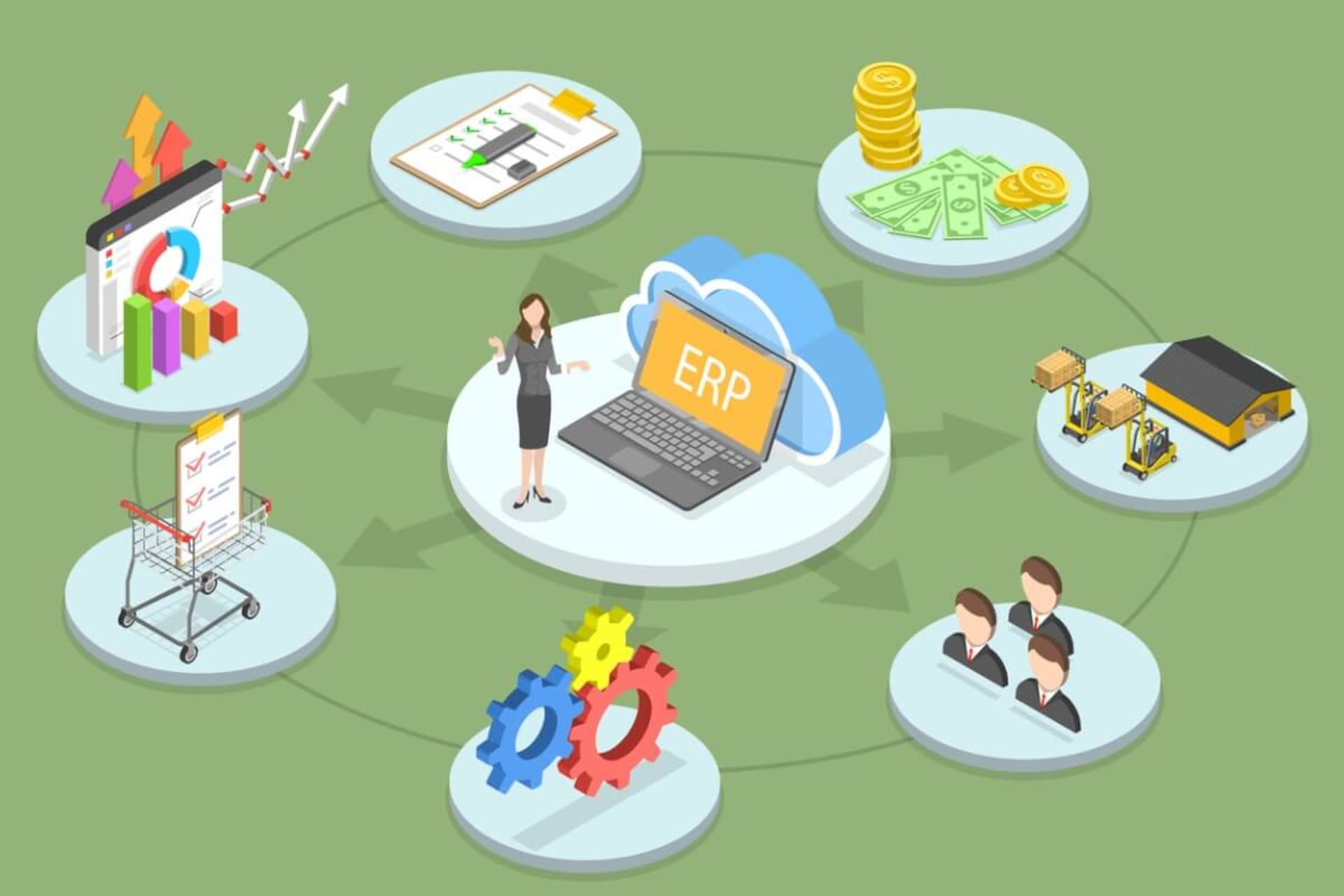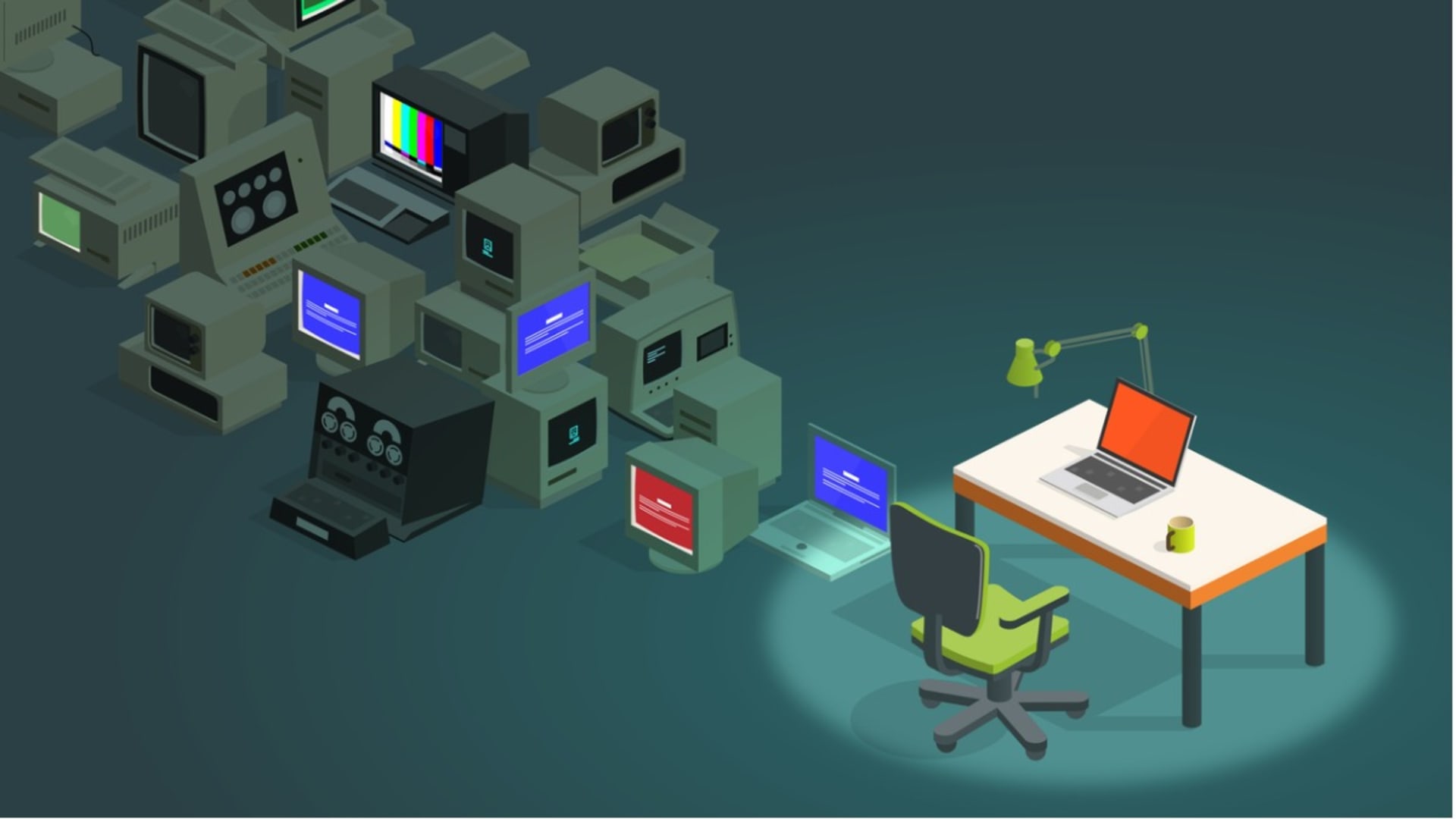With technological advancement, many businesses are shifting from conventional spreadsheets to sophisticated, SaaS-based software solutions for managing data. One such example of that is the increased usage of ERP software.
Enterprise resource planning (ERP) systems are consolidated software platforms for gathering and organizing business information at a centralized location. They can also automate business functions such as payroll, invoicing, ticketing, etc.
ERP systems improve collaboration by increasing data visibility, as information entered in the system is immediately accessible by authorized users. This allows companies to use real-time data to optimize business processes and run custom workflows. ERP platforms are highly customizable (i.e., you can choose which modules you want to integrate into your build).
ERP modules are software components that support specific business processes/operations. They manage data and automate repetitive tasks, allowing admins and engineers to focus on complex problem-solving.
Some of the Common ERP Modules That Businesses Use
1. Accounting
ERP systems often include an accounting/finance module for managing business finances and its associated analytics. You can use it to generate payroll, manage ledgers, and control account receivables.
You can also segregate finances by departments such as HR, admin, and marketing. Businesses often use this feature to create budgets, profit and loss statements, and cash flow projections. This module can also be integrated with multi-currency systems and tax management software.
2. Inventory Management
Inventories are a huge part of supply chain management (SCM). Using this tool, companies can perform admin tasks such as tracking sales orders, processing receipts, and managing inventory profitability. Furthermore, you can use this module to manage tool acquisitions and inventory control.
This module tracks inventory details such as equipment location, condition, and age through serial numbers. It also has options for multi-location inventory management and inventory performance.
3. CRM
Organizations use customer resource management (CRM) modules to manage customer information such as leads, contact lists, and customer interaction. Through this module, you can track consumer history and lifetime value.
The CRM module also contains a contact manager for managing information such as contract duration, call logs, meeting records, etc. This allows businesses to use customer feedback to improve services and increase customer retention. Furthermore, you can use CRM dashboards and reports to understand user/market trends.
CRM modules can also be used for generating segmented customer reports. Segmentation can be done on location, age, or gender to generate high-quality leads. Business managers can also look at repeat customer information to create cross-selling opportunities.
4. Human Resources (HR)
The HR module contains employee details such as name, salary, job description, designation, and reporting line. Managers can use this module to generate performance reviews and skill matrices. Recruiters also use this to manage recruitment data, such as job descriptions, designations, and salary ranges.
The HR module also has a finance component that allows it to manage salaries, expense reports, and office reimbursement receipts. You can use it to manage office details such as outstanding supplies, vendor records, etc
5. E-commerce
Most companies these days use the internet to sell their products online. This module helps them manage their B2B and B2C product offerings by handling customer interaction, taxation, and marketing. Businesses can also use this module for inventory/warehouse tracking, content management, and UX customization.
6. Marketing Automation
This dedicated marketing automation module allows businesses to create marketing campaigns (email, web, social media) for omnichannel marketing. You can also use it for SEO, SMO, and email autoresponder sequence creation.
Marketing managers can also use this for ROI monitoring and lead nurturing. Furthermore, you can use this module to reach out to marketing influencers, journalists, and bloggers for next-gen lead generation and content marketing.
Most Common ERP Platforms on the Market
ERP platforms are business-oriented tool sets that combine information from different business scopes under one system. They allow engineers to manage native ERP module integrations, simplifying implementation and maintenance.
An ERP platform is a distributed system that streamlines data communication and internal information processing. Some of the most popular options are listed here.
Sage X3
Sage is an amazing ERP solution that manages different aspects of your business, such as finance, project management, ERM, and distribution.
It tracks your supply chain in real time and provides inventory tracking and monitoring options. You can also use its SCM features for mass maintenance, change management, and equipment quality analysis. In addition, businesses can use its BOM planning options for managing contractor invoices and memos.
Sage X3 allows admins and executives to look at finance and ledger details, which is useful for transaction management, budgeting, and financial reporting. It also has options for project management, with parameters such as labor time, direct and indirect labor tracking, attendance management, etc. Employees can also use it to log shift breaks and leaves.
SAP ERP
SAP S/4 Hana cloud is SAP’s flagship ERP product, which allows users to manage different business processes such as finance, manufacturing, customer service, and product development. Company executives can also use it to manage R&D and dangerous goods.
This platform provides you with a 360-degree view of the project for software product development, which businesses can use to optimize model development and improve project agility.
This platform has amazing inventory management options for tracking installed equipment and managing service contracts. You can trigger automatic billing and understand profitability trends using the operations dashboards. This tool also allows vendors to offer multichannel customer support for holistic customer service and end-to-end service management.
Microsoft Dynamics ERP
Microsoft has a whole suite of ERP tools for small- and medium-size businesses. The Dynamics 365 Business Central is an all-in ERP tool directed toward small businesses. It has different modules for finance, SCM, inventory tracking, and project management.
Dynamics Sales is a Microsoft ERP module developed specifically for handling B2C and B2B sales. It provides AI-driven insights for inbound leads, which allows marketing managers to filter opportunities.
The Dynamics 365 Supply Chain Management module allows admins to maintain inventory and create service requests for hardware parts. Through Dynamics 365 for Field Service, sales associates can maintain onsite visit records for support and maintenance.
Why Should Your Business Use ERP?
ERP systems improve cross-departmental data sharing by creating a centralized repository of data. They optimize business processes and improve visibility across various domains, such as manufacturing, CRM, inventory, and finance.
Many software solution providers allow you to craft your own slice of ERP platforms (i.e., an ERP platform will have a standard core but with different module integrations). You can choose which modules you want to integrate into your platform and only pay for them. This makes ERP platforms economical and efficient solutions to your data-sharing problems.












